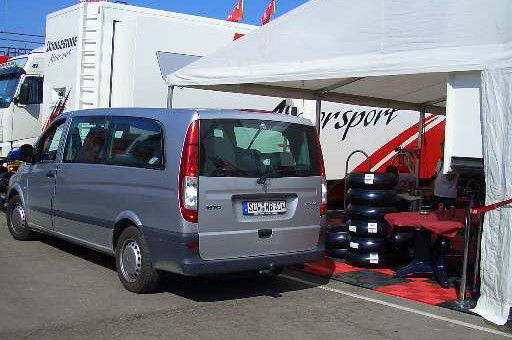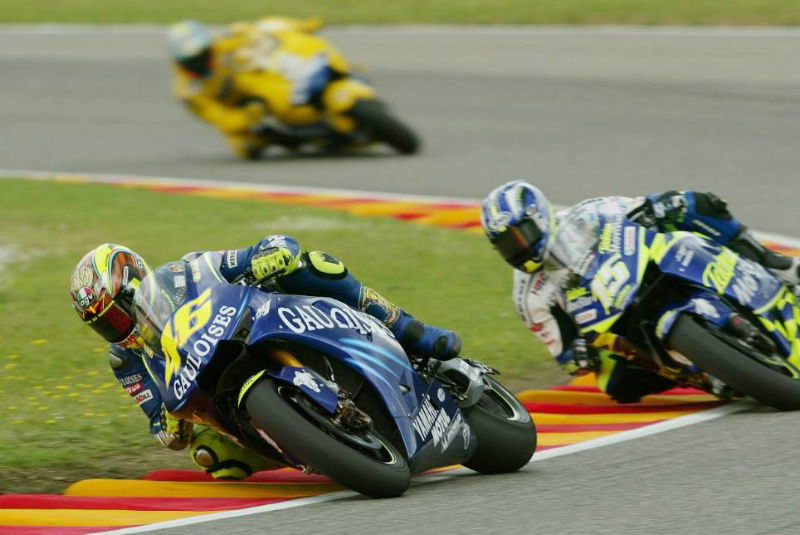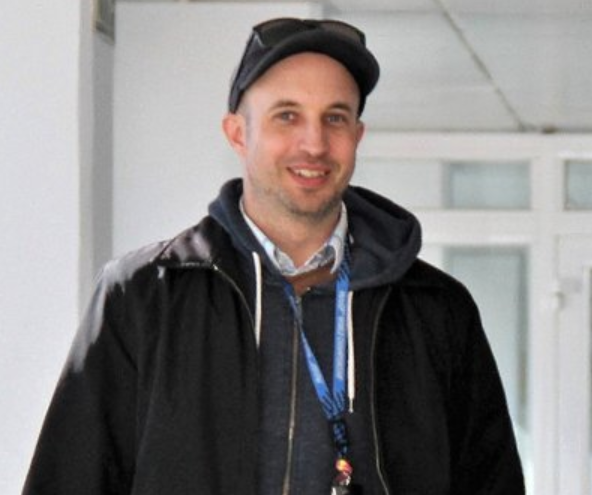Being Sete Gibernau.
The Catalan Grand Prix will probably be the biggest weekend Sete Gibernau has ever known, since - one quarter of the way through his eighth premier-class season - the 31-year-old will arrive at his home GP leading the world championship standings for the first time.

The Catalan Grand Prix will probably be the biggest weekend Sete Gibernau has ever known, since - one quarter of the way through his eighth premier-class season - the 31-year-old will arrive at his home GP leading the world championship standings for the first time.
With Gibernau and defending champion Valentino Rossi having shared two victories from the first four rounds, MotoGP 2004 is increasingly looking like a straight battle between the pair. That's not to say third placed Max Biaggi is out of the equation, but the emphasis is now on the Roman to prove his title winning potential.
By contrast, Gibernau has delivered results beyond most expectations and - as impressively - has shown a level of mental toughness and composure some doubted he possessed before this season.
"I'm keeping my feet firmly on the ground," confirmed the Catalan. "I'm the same guy I was before I was leading the world championship. I've still got a lot to learn, I've still not fulfilled my potential, I've just got to keep on learning."
Gibernau has a motorcycling pedigree second to none, having grown up surrounded by motorcycle engineers, riders and aficionados. Indeed, when he arrives at the entrance to the Montmelo circuit, the first thing he'll see is the statue of his grandfather, the late Francisco Bulto, 'Don Paco', founder of the Bultaco marque.
Sete's father Manuel is himself a former racer who also managed the Bultaco Competition Department for several years. But, despite a race career of his own, father Manuel is too nervous to watch his son race but his mother, Cristina, is an avid fan and follows every MotoGP race either live or on television.
Everyone in the family also rides motorcycles, virtually on a daily basis: Manuel steers a Honda Forsight 250 in heavy traffic of Barcelona, mother Cristina prefers a Scoopy 125 for all her chores while Sete's younger sister, and press officer, Cristina is more adventurous - and has just taken delivery of a CBR600RR.
The family often took rides together, but Sete's intense racing and testing schedule, plus the ever increasing associated promotional work have restricted the family's opportunities to share fun rides together, but the closeness between them remains.
"My family have played a very important role in my career they have all given me their full support, my parents, sisters, and my grand parents," said the series leader. "We are a close family, in fact it was my uncle who gave me my nickname 'Sete.'
"My Grandfather, Don Paco, was a great person he created an industry, developed many exciting motorcycles and helped many riders over the years, great riders from all over the world. He was a huge influence on my career but he never pushed me. He was, above all else, my friend and a real human being."
Despite the connections, Gibernau's path to the top of his profession has not been meteoric. He made a relatively late entry into road race competition, at 19 years of age following several years competing in Trials events, and began his tarmac career in Spanish 125cc sports production racing earning himself a unique place in the history of the Montmelo circuit - Sete won the first ever motorcycle race held at the circuit, a 125cc Cagiva Cup event.
From there Gibernau moved into the 250 class in the Ducados Series, making his GP debut as a wild-card for the Wayne Rainey Yamaha squad in1992. He then made a full entry into world championship racing in 1996, finishing 22nd in the 250 series.
Gibernau moved to 500s in '97 to begin his positive march towards joining the elite of his chosen profession. Sete raced for the Rainey Yamaha squad in '97 before moving to Honda in 1998 as replacement rider for the injured Takuma Aoki, on a 500cc V-twin. The following year he moved on to the NSR500 V-four vacated by the injured, five times world champion, Michael Doohan and finished the season in fifth place.
After an unproductive 1999 season, Sete moved on to Suzuki for two years (2001 - 2002) where, in his first year with the team, he won the GP of Valencia on a 500cc two-stroke. He then returned to Honda and the fabulous RC211V for the 2003 season - promptly winning four races to end the year as runner-up to Valentino Rossi.
A calm, intelligent and fun loving man with a passion for everything he does in life, Gibernau has his feet firmly planted on the ground - and a clear vision of what he hopes to achieve.
"I'm not obsessed with racing, I have a life outside the sport and it makes me realise the importance of down time away from the track, you cannot let it control your life completely," Sete explained. "When you go out and see others less fortunate than us, even in these times some people just don't have a life through particular circumstances, that makes you realise how important it is to live a rich and varied life. Don't get me wrong, I love racing and want to win as much as the next man, I'm dedicated but not obsessed."
Having originally joined Fausto Gresini's Telefonica MoviStar Honda team as a number two to HRC factory rider Daijiro Kato, Gibernau soon found himself given the role of team leader when Kato was tragically killed at the Suzuka season opener.
Gibernau thrived under those most difficult of circumstances, winning next time out in South Africa and helping to hold the team together. As a result, the ties that bind team, rider and manufacturer are considerable.
"I have the best team in the paddock, the best in racing," enthused Sete. "We have a very strong work ethic, everyone in the team gives 100% and we almost always improve. Honda has also helped us when it was possible, like the test after Jerez where we sorted out most of our chatter problems.
"They have been very fair with us. But we are a satellite team, that will not change and we have to get the best out of what we have. The team has done a brilliant job so far and everyone if fully focussed," he added.
In his premier-class career to date, Gibernau has won at Spain's other two world championship venues - Valencia in 2001, and Jerez last month - so a win at Catalunya on Sunday would complete an extraordinary home trilogy.
"I really like Barcelona, this is my real home race because it is here I was born and this is also where my parents live," admitted Gibernau. "We receive great support from the Spanish fans and it's good that we can repay them with good performances. I won the Jerez race this year and I've won at Valencia, it would be great to win at Montmelo, the fans would love that, me too. Wouldn't it be incredible if we could win all three Spanish races in one season!"
Having experience of the very best 500cc two-stroke machines and the MotoGP 990cc four-strokes, Gibernau is qualified to make comparisons between the two types of ultimate racing machine:
"The four-strokes are now getting just like the 500cc two-strokes, lean and mean!" he smiled. "They are quite different bikes, although at the end both are demanding and the amount of concentration to ride them has to be very high. The basic differences are the power delivery and the engine brake, much stronger on the RC211V.
"They are, in some ways, a little easier to ride than the two-stroke but at the top end just as difficult to get everything out of them," he revealed. "They are very, very fast and have changed the nature of some tracks we race at, some corners for sure. Take the double right hand corners at Jerez - we used to go into the first one then a quick burst on a straight before throwing it into the second right. The four-stroke changed that, its now one corner.
"Concentration is everything, you have to retain concentration for the whole race on the four-stroke it's very exciting but also very demanding mentally. I think the reason is that there are so many good riders in MotoGP and the differences between us are very small, one error can cost you a lot. Fast or slow corners you can never relax, if you do someone will catch you, or get passed you," he concluded.
First qualifying for the Catalan Grand Prix takes place tomorrow (Friday).


